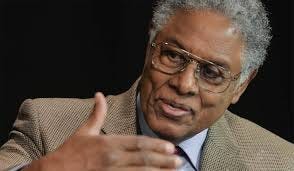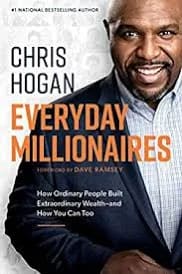Learning Economics and Personal Finance from Black Authors
Three great authors to read in Black History Month
This is adapted from an article I wrote for The Daily Item in February 2021. If I were rewriting fully now, I’d also add in Jason Riley, who we had to campus in September and has several thought-provoking books, including a biography of Thomas Sowell and The Black Boom.
Learning Economics and Personal Finance Black Authors
Matthew Rousu
Over Black History Month, many people are recommending Black authors and promoting their books. When non-fiction books by Black authors are recommended in February, however, it is rare to see recommendations to read books on economics, money management, and/or the value of markets and liberty. With this in mind, I recommend books from three experts in economics and personal finance.
These authors write with amazing clarity and whose writing is accessible for non-economists. I’ll briefly share why I like their work and why I think that everybody – and especially those in middle and high schools – would benefit from reading works from these three authors.
Dr. Thomas Sowell is one of my favorite economists, and is perhaps the top Black economist in history. Sowell has written over a dozen books and hundreds of columns on economic topics. He has been writing for decades and his work is as relevant now as it has ever been. One of Sowell’s most recent books is Discrimination and Disparities – which uses empirical evidence brilliantly to “challenge the idea that different economic outcomes can be explained by any one factor, be it discrimination, exploitation or genetics.” This book is amazingly timely and should be read by everybody who wants to make sure the policies they advocate for won’t have unintended negative consequences.
I have read several of Sowell’s other books and highly recommend Basic Economics, which is a great introduction to the subject; The Quest for Cosmic Justice, which examines the downside in pursuing laws in the name of social justice; Economic Facts and Fallacies (the title is all the summary you need); and A Conflict of Visions, which helps explain actions from politicians who may ignore the consequences of their actions and instead pass policies consistent with their vision, even when the policies are bad for society.
Chris Hogan is a popular radio host and has written two bestselling books on personal finance. I highly recommend Retire Inspired and Everyday Millionaires. Retire Inspired clearly illustrates a key fact – one’s retirement is not based on an age, but a financial number. It lays out easy-to-digest strategies on how to retire.
Everyday Millionaires presents information on a study of over 10,000 millionaires. One of my favorite facts that Hogan presents is that only 21% of millionaires received any inheritance – which counters a common myth that the only way to become a millionaire is inheriting money. This book clearly shows that almost anybody can become a millionaire through intentional saving and investing. Everyday Millionaires should be required reading in middle and high schools, in my opinion, for two reasons. The first reason is obvious - the personal finance lessons. Hogan writes clearly and his lessons could help youth understand personal finance and savings/investing.
The second reason his books should be required reading in the K-12 curriculum is for the message it clearly sends. Reading Hogan’s books should convince you that you can “retire inspired”, as he phrases it – regardless of whether you are in a high-paying or low-paying job. This is crucial and the world needs this message to be communicated more often. If you pay significant attention to the news you might think it is impossible to get ahead anymore. Hogan proves this message is wrong, and as he likes to say “The American Dream is Alive and Well”.
Dr. Walter Williams, who passed away in late 2020, wrote several books that are worth reading. Race and Economics: How Much can be Blamed on Discrimination was written in 2011. While several years old, it is well written and the lessons are timely. He argues that free-markets are necessary to combat discrimination and discusses, in detail, how certain government actions have harmed Black citizens. Liberty Versus the Tyranny of Socialism discusses … well … I think the title says it all, right? And his autobiography, Up from the Projects, is interesting and also has good lessons.
I think it is important for people of all races to read from authors of all races. Chris Hogan, Dr. Thomas Sowell and Dr. Walter Williams have written some great books on economics and personal finance topics. You will be better informed by reading their work and thinking carefully about the lessons they provide.





Marvelous authors and economists all. Well worth the reads.